Making it easier for customers to find sustainable products in our stores
We believe the people behind the products we sell deserve to be treated fairly and encouraged to use resources sustainably. As a national grocer and retailer, we’re committed to using our scale and influence responsibly, by taking steps to partner with our suppliers and source more products that fulfill the growing customer demand for ethical and sustainable products.
Fiscal 2024 Performance Highlight
of Own Brands seafood is sustainably sourced
Our Approach
Our key focus areas for ethical and sustainable sourcing include:
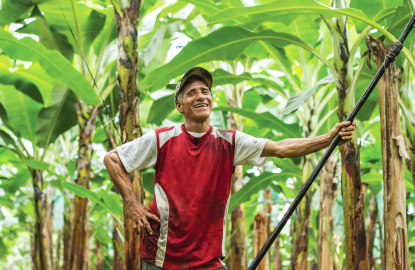
Fairtrade

Animal welfare
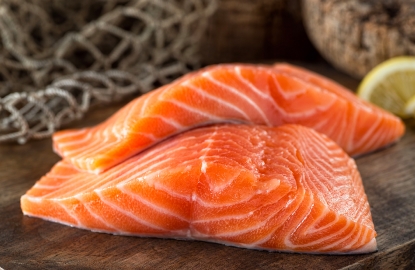
Sustainable seafood
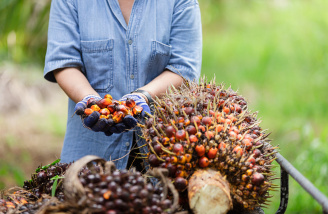
Sustainable palm oil
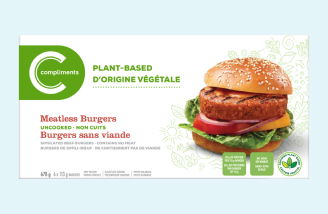
Plant forward
Our strategy for each of these topics is based on a multiphase approach that involves gathering data to gain a deeper understanding of our supply chain. This helps us develop appropriate governance, set commitments and continuously improve. Our goal is to empower supplier partners with clear policies, expectations and tools and to enable customers to make sustainable and healthy product choices.
Key partnerships supporting our work in this area include the Roundtable for Sustainable Palm Oil, CDP Supply Chain Program, National Farm Animal Care Council (NFACC), Canadian Roundtable for Sustainable Beef, Sustainable Fisheries Partnership, Ocean Wise, and Fairtrade Canada.

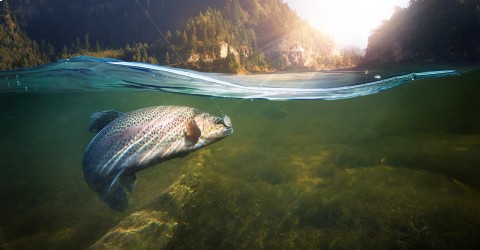
Embedding Responsible Sourcing Across Our Supply Chain
Through our Ethical and Sustainable Sourcing Policy (ESSP), we continue to work across all product categories to embed responsible sourcing standards and expectations into purchasing processes. Applying to both direct and indirect supplier partners, this policy communicates our expectation that they address the social and environmental impacts of their products by complying with all applicable laws and regulations and upholding high standards of stewardship.
Focus on Human Rights
We are also reviewing our supply chain and procurement practices with a particular focus on child and forced labour. In 2024 we filed our first Fighting Forced Labour and Child Labour Report and aim to launch a Human Rights Due Diligence Program to mitigate these risks in our supply chain. Read more about our approach to human rights.
Ongoing Commitment to Animal Welfare
Building on the publication of our Ethical and Sustainable Sourcing Policy and Animal Welfare Statement in fiscal 2023, we are developing new and updated guidelines in collaboration with supplier partners and other stakeholders, including the National Farmed Animal Care Council. We are focused on addressing protein-specific welfare issues and, where feasible, introducing updated time-bound commitments towards higher welfare products. We will continue to address animal welfare on a protein-by-protein basis, doing our part to encourage more ethical and sustainable production, including addressing climate impacts and supporting biodiversity and nature.
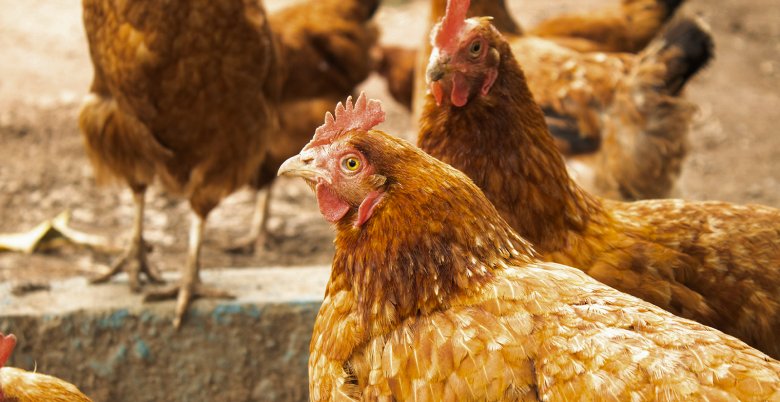
Protein |
Our Commitments & Actions |
|---|---|
ProteinBeef & Dairy |
Our Commitments & Actions
|
ProteinPoultry & Eggs |
Our Commitments & Actions
|
ProteinPork |
Our Commitments & Actions
|
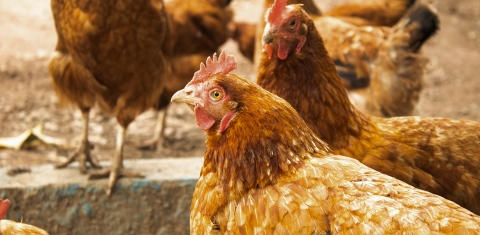
Supporting More Sustainable Seafood Practices
Through our Seafood Metrics initiative, delivered by the Sustainable Fisheries Partnership, supplier partners gain a comprehensive understanding of the sustainability risks and opportunities associated with their source fisheries, including both wild-caught and farmed seafood. Businesses can evaluate the sustainability impacts of fish and seafood products, understand the effectiveness of existing improvement efforts, and prioritize future opportunities. Seafood Metrics also serves as a traceability program enabling suppliers to report place of origin. This empowers suppliers and our procurement teams to make informed decisions about the seafood they source and promote more sustainable practices in the industry.
After gathering information for one year through Seafood Metrics, our business and suppliers have reliable data on seafood origin, catch methods, certifications and human rights risks. A third party, Ocean Wise, audits and assesses the data to provide annual recommendations on alternative sources to eliminate or reduce non-sustainable species or fisheries across our seafood supply chain. We work closely with the Sustainable Fisheries Partnership to address gaps in our reporting and to ensure seafood data is accurate. Using this data, we have begun to update our seafood guidelines to be more reflective of the current environmental and social imperatives to ensure our oceans are being fished responsibly. We aim to share these guidelines with supplier partners within the next year.
As we work towards expanding our sustainable seafood guidelines beyond our Own Brands products, we are certified by these third-party programs:
Percentage of Own Brands fresh and frozen fish and other seafood by weight that are third-party certified sustainable or recommended
Percentage of Own Brands fresh and frozen fish and other seafood products certified by Marine Stewardship Council
Percentage of Own Brands fresh and frozen fish and other seafood products recommended by Ocean Wise
Percentage of Own Brands fresh and frozen fish and other seafood products certified by Best Aquaculture Practice
Percentage of Own Brands fresh and frozen fish and other seafood products certified by Aquaculture Stewardship Council
Note: Products may be certified to more than one third-party certification program.
Sourcing Sustainable Palm Oil
Last year we updated our Sustainable Palm Oil Policy, setting a goal to only source 100%-certified sustainable palm oil in Own Brands products by December 31, 2025, as defined by the Roundtable on Sustainable Palm Oil (RSPO) standard. We will achieve this goal without purchasing palm oil credits. As we increased our commitment, we updated our approach to ensure supplier partners meet our standards through annual checks and verified certification.
In fiscal 2024, we hosted supplier-facing webinars on sustainable palm oil RSPO certification. We also focused on educating teammates about the environmental and social impacts of palm oil sourcing. We continue to encourage all suppliers to adopt sustainable palm oil practices, end deforestation, treat workers and communities fairly, and protect wildlife and the environment.
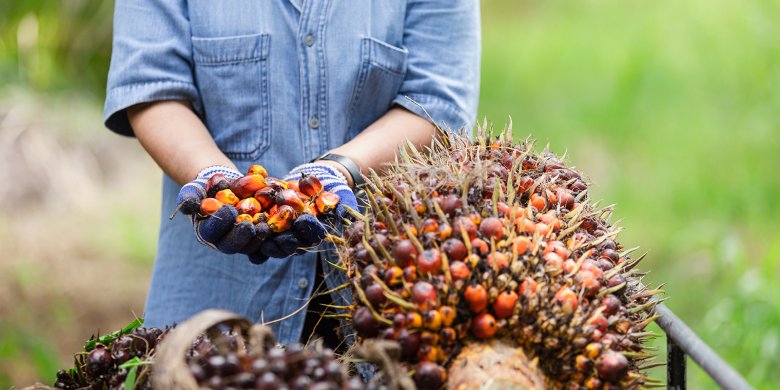

Ensuring Fair Pay for Growers Through Fairtrade
Organic Fairtrade bananas are available in our stores across Canada, contributing to fair pay for growers. Fairtrade banana growers are paid at least the Fairtrade Minimum Price, which acts as a crucial safety net through market fluctuations, and a Fairtrade Premium—an extra sum of money for investment in business or community projects. In fiscal 2024, Sobeys purchased 4.6 million kilograms of bananas, generating $256,601 of Fairtrade Premium funds.
In addition to our Own Brands assortment of Fairtrade coffee, chocolate and tea, we also provide an outlet for many national and international suppliers to make their products available across Canada. Some of these brands include:
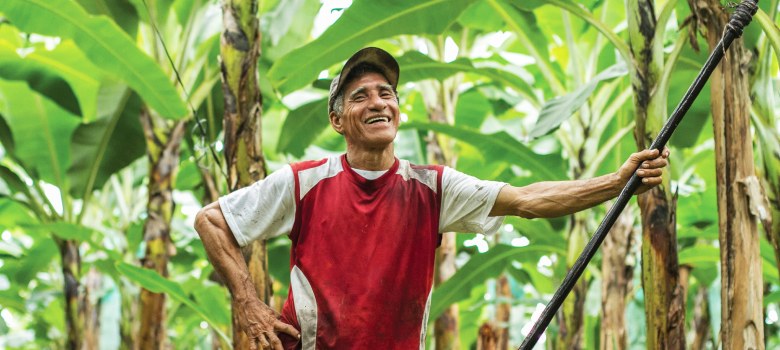
|
Coffee |
|
|
Chocolate, Snacks & Baking |
|
|
Tea |
|
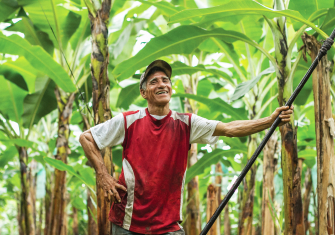
Increasing Plant-Forward Options
Canadians report a strong desire to have their actions and purchases reflect their concern around a changing climate and their own health and wellbeing. To support this, we aim to give our customers a choice of great-tasting options from our broad assortment of fresh, nutritious produce, legumes and other plant-based products. Two areas of focus will be speciality mushrooms, which can be sustainably grown while offering a delicious accompaniment or an alternative to meat, and microgreens, which combine high-efficiency production and high nutritional benefits.
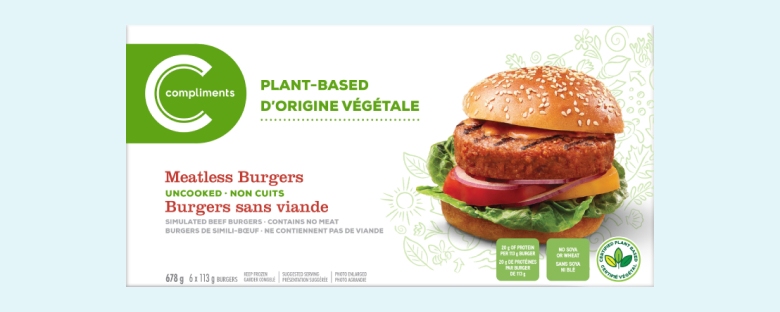

Improved Ways to Choose Sustainable Products
Third-party certifications enable customers to feel confident about the products they enjoy. Through our newly launched Look for the Wellness Program and Green C Compliments program, customers can identify products associated with better environmental outcomes such as organic, plant-based, vegan, environmentally friendly packaging, third-party certification and products without phosphates, parabens or sulfates.

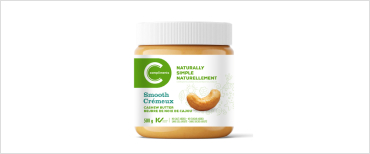
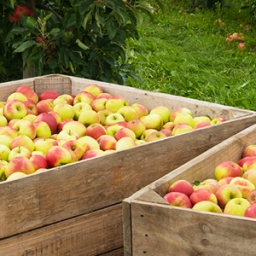
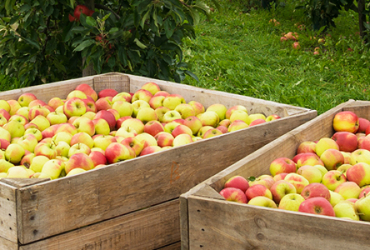
Learn More
Our commitment to ethical and sustainable sourcing connects with our focus on building strong supplier partnerships and maintaining food quality and safety.
As a family nurturing families, we want to ensure Canadians are taken care of today, tomorrow and in the future. By doing OurPartR for the environment, we hope to inspire our customers to do theirs. Every step we take together—big or small—can make a difference.
Learn More



